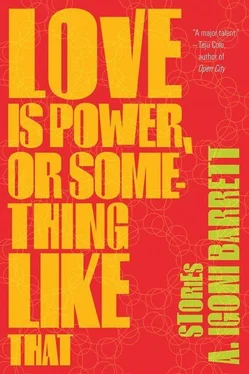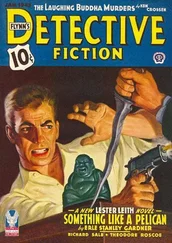
Ben’s head was bent over the keyboard as he typed. His curly gray hair had a hairless patch at the crown.
So. . what do you think?
Samu’ila’s reply was prompt.
About?
He knew what Ben meant, but in the role of a woman he always acted difficult or played the fool. That was a cardinal rule.
About me! Are you surprised? Disappointed?
PLESANTLY SUPRISED!!!
Thanks!
Ur welcum:)
Ben’s next question drew a smirk on Samu’ila’s face.
When will I get to see your face?
His reply:
U’ve already sin it.
I don’t mean your photo. I mean see you as you are seeing me. . via webcam.
A smile playing on his lips, Samu’ila bent forward to type.
But I’ve told u be4 Ben, many cafes around here dont hav webcam & I cant afford de money 2 be browsin in de ones dat hav. Its not so easy 4 me 2 be comin 2 chat wit u everyday, its just dat I luv u & I need 2 talk 2 u but it is gettin very hard 2 find de money.
Samu’ila folded his arms against the air conditioner’s draft and waited for Ben’s reply.
Why don’t you call me? Or give me your number so I can call you?
Bcos I dont hav a fone!!!
You don’t have a friend whose cell you can borrow for 5 mins?
Ben watched the camera with an intensity that resembled distrust. Samu’ila noticed that his eyes were so light they seemed myopic, and that his nose was hooked at the tip, like a vulture’s beak. The air conditioner’s gusts were getting colder. Samu’ila decided to end the chat.
I’m startin 2 tink ur only interested in my body. . 2day it’s my face, 2moro it will be my boobs ur wantin 2 c! Ur soundin like all dose men who’ve tried 2 take advantage of me, like dose rebels in Liberia dat killed my husband. . & I REALY thot u were different! U’ve made me feel bad Ben. Bad and dirty. Like a SLOT!!!
Ben’s exclamation-mark riddled “sorry” popped into the chat box, but Samu’ila forged on:
U want 2 c my face, but what about me? U tink I dont want 2 be wt u rite now in ur room, with my head on ur sholder & ur arms around me, holdin me safe? BUT I CANT!!!
Samu’ila leaned back in his seat, clasped his hands together and thrust them between his knees, stared up at the ceiling, ignoring the words on the screen. Then he bent forward, his hands rose and, after hovering over the keyboard in a butterfly dance, swooped.
U dont appreciate all de sacrifice dat I make 2 be here 4 u EVERYDAY!!! U dont even ask why I’m not @ work. 4 de past 3 wks I’ve been online wt u every morning & u dont even wonder how I’m survivin? Or even if I hav a job? DO U LUV ME @ ALL!?
Ben’s eyes darted and blinked, his face creased in distress, his messages flooded in, but Samu’ila closed the instant message box, signed out of his Messenger account, and logged off his ticket. As the computer screen blanked off, he caught his reflection. He wiped the grin off his face. There was still a lot of work to be done on the mugu, and celebrating beforehand, as everybody knew, was bad luck. But even this thought couldn’t dampen the good feeling that fizzed in his belly.
He stood up shivering from his chair, cupped his elbows in his palms, and walked quickly to the computer beside the attendant’s desk, which the man with the heavy Igbo accent had finished using. As he settled into the lucky seat, the attendant glanced up from her book, caught his gaze, and hissing with annoyance, yanked up her blouse. Then she returned to chapter twenty-eight of her romantic saga.
As for Samu’ila: he signed in this time as a fifteen-year-old Mozambican girl — a virgin, and looking.
The Shape of a Full Circle
Well, son, I’ll tell you:
Life for me ain’t been no crystal stair.
— Langston Hughes, Mother to Son
.1 .
Dimié Abrakasa was fourteen years old. He had small ears, a long neck, and the sensitive, flexible fingers of a pickpocket. His grandmother said his skin was the color of polished camwood. His mother hated his eyes.
.2 .
The house that bore the number 197 on Adaka Boro Street was painted a sunny-sky blue. On the wall above the doorway, in drippy black paint, were written the words:
THIS HOUSE IS NOT FOR SALE
BEWARE OF 419
The street door, which was ajar because of a broken latch, opened into a corridor that smelled of kerosene smoke and rat fur. The corridor had nine doors on each side, and led into a courtyard. The courtyard served as a store, a kitchen, and a place of social gathering.
.3 .
Dimié Abrakasa entered the corridor. He walked to his apartment, the fifth door on the right, and turned the handle. Despite the gentleness of his touch, the door opened with a squeal. The heat that wafted out had the force of a chemical combustion. Dimié Abrakasa unshouldered his school backpack, then walked in and nudged the door closed with his heel. The TV was on. Méneia and Benaebi were home.
“Welcome, Dimié,” his brother and sister greeted in unison.
“Ehn,” he answered, and looked at his mother. “Afternoon, Mma.”
Daoju Anabraba lay on the bed, on her side, her face turned toward the door. From chest to knee she was wrapped in a red, black, and green wax print cloth. Her skin shone with sweat; the bedsheet — pale green, with white flowers patterned across it — was limp with dirt. An empty Gordon’s Gin bottle rested on its side on the floor beside the bed. Dimié Abrakasa waited for her to reply to his greeting, which he knew she wouldn’t, so he turned and walked to the corner to remove his school uniform.
A single electric bulb hung from the ceiling and lit the room. There was a window in the wall that faced the door, but the wooden shutters were fastened with nails. The bed was lined against this wall. At the foot of the bed stood a sturdy, antique redwood dresser; on its varnished top sat a gilt-framed photograph. Dimié Abrakasa stripped to his underpants in front of the dresser, then pulled open the bottommost drawer and rummaged in it until he found a pair of jeans and his yellow T-shirt.
Méneia and Benaebi sat cross-legged in front of the TV. The light that streamed from the screen played on their still faces. Méneia was the spitting image of her mother, except that, where Daoju Anabraba had a beauty spot on her right cheek, Méneia, in the same place, sprouted a mole that was the size and appearance of a raisin. She was four years older than Benaebi, who, at eight years old, was shedding his milk teeth. He sucked his thumb.
His sister had tried everything in her power to wean him off this habit — from soaking his hands in bitterleaf sap to coating his fingers with chicken shit — but Benaebi persisted. When he wasn’t chewing his fingernails, his thumb was thrust through the gaps in his teeth. Several fingers of his two hands were cicatrized by whitlow, and the skin of his thumbs was as pale and shrivelled as lab specimens floating in a jar of formalin.
Dimié Abrakasa moved away from the dresser, and Méneia turned to face him, but her gaze remained on the screen.
“What are we eating, Dimié?” she asked.
Dimié Abrakasa walked to the head of the bed, rested his shoulders against the wall, and said: “There’s still garri in the house, abi?”
“But no soup,” Méneia replied.
Benaebi looked up, eyes glistening. “I’m hungry,” he said, as he sucked his thumb.
“What will we eat?” Méneia asked again.
Dimié Abrakasa glanced at his mother. Her face was closed, heavy as stone. Tendrils of lank brown hair clung to her cheek and fluttered each time she breathed out. Dimié Abrakasa turned back to Méneia. “Like how much do you think we need to cook enough soup to last till tomorrow?”
Читать дальше


![Сьюзан Кейн - Quiet [The Power of Introverts in a World That Can't Stop Talking]](/books/33084/syuzan-kejn-quiet-the-power-of-introverts-in-a-wo-thumb.webp)










